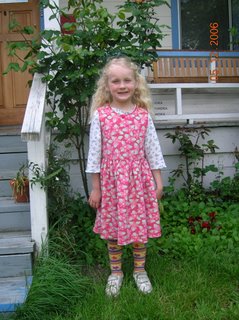Weeding memento mori
In library school they teach you that weeding is important, maybe as important as acquisitions (i.e. buying new stuff). First, if you don't weed regularly, obviously you'll run out of room pretty quick unless you have an Expand-O-Library. Second, people check out more new stuff if they don't have to slog through all the old stuff to get to it. It's true! They've done studies!
But you know how it is with the stuff you don't have to do immediately-- often, it just doesn't get done. I did weed a few sections a few years ago. But in the last couple weeks I have weeded more than half the library. That means I have picked up each book in my very own dusty hand and, with practiced (well, I'm practiced by now) professional speed, evaluated it based on the following criteria:
- Checkouts (has it checked out even once since I put in the date-due stickers back in 1999? No? Well, maybe it could go),
- Physical condition (is it falling apart? Does it have an ugly buckram cover that a 21st-century kid will never pick up of his or her own free will? Is the cover illustration dorky and dated?)
- Currency of information (The classic example is the "one day man will go to the moon" book, but there are lots of others. Computers! Atlases! Dinosaurs! I'd hate to think some kid grew up believing the wrong stuff about dinosaurs, all because of my sloth.)
- Presence of other books like it in the collection (How many biographies of Helen Keller does one library really need, anyway? A lot, to judge by the checkouts, but maybe not that one falling-apart paperback I remember from my own childhood...),
- Literary or curricular value (Newbery winner? By a famous author? Only book we have on that particular topic? Probably it stays, even if all it will do is sit there forever and friggin ever)
Weeding brings on all kinds of fleeting thoughts about the impermanence of, well everything. Weeding the fiction section was especially hard; fiction doesn't date in obvious ways the way nonfiction does, and I'm painfully aware that each book might represent years of the author's life. Plus, lots of them look like they'd be fine to read. And each one is unique; it's not like nonfiction, where I have no trouble making the call that, say, one or two books on each planet is plenty.
I'd look over the book, note the undistinguished cover, the one lone checkout stamp from six or seven years ago, and then I'd read the inside jacket and think, "hey, this looks pretty good! It's about a kid with divorced parents-- I'm sure that'd speak to some kid now. And aw, look, the author's a school librarian too. She must've been so happy when it got published! I could read this, right now! Maybe if I read it over the summer, I could come back in the fall and convince some kid to read it, and its shelf-sitting days would be over. I'd have rescued a book from oblivion!"
Then I think of all the new books on my own personal summer reading list, and the unlikelihood of me getting to it, and the even further unlikelihood of a kid actually reading it, and I remember my weeding mantra: not "will anyone possibly read this book?" but "is this book likely to be actively missed if it's gone?" And into the box it goes.
It's surprisingly emotional work. The other day I weeded some books by Paula Danziger, a wonderful children's author who died two years ago. I kept her "Amber Brown" and "Longer Letter Later" books, but I pulled some falling-apart 70's-era paperbacks, even though I remember loving them: "The Pistachio Prescription," and "Can You Sue Your Parents for Malpractice?" People can find her books in other places if they need them, I thought defensively. There are the big public libraries, and university children's book collections. Not to mention abebooks.com. But still, when the books hit the box I felt like I was shoveling dirt into her grave.
This book had its time, I remind myself, over and over. The author probably loved writing it, and lots of people read it, and now its time is over. We have newer books, more likely to be actually read. And this isn't a historical archive; it's a small, working, school library.
Just like it says on the Six Feet Under DVD cover: everything, everyone, everywhere ends. Even buildings named named for people get torn down, and replaced with new buildings. Even cities end. Even civilizations.
So, that's the kind of stuff I've been thinking about during work every day, as I listen to archived "Fresh Air" interviews on my laptop and pull one book after another off the shelf.
Now that I've written it all out, it does sound like kind of a downer. But it's not. For one thing, it's great to have a job for once where I can actually see the results. At the end of the day, I look over the emptier, brighter shelves, and at all the boxes on the floor waiting to be deleted from the catalog and taken away by the guy who will sort them and donate them to tutoring programs, and I feel light and airy and cheery. I wash my dusty hands, and head out to the parking lot.
One day I'll be gone too. But I'm here now, today.
And summer starts in a mere four weeks.



